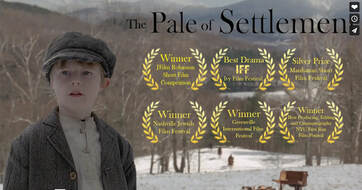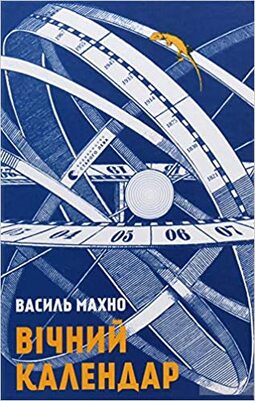 In recent webinar presentations I’ve given, one topic that tends to generate a lot of interest and provokes many questions and discussions is that of Jewish conscription to the Russian army in Tsarist times. One particularly brutal and terrifying experience for our forefathers was the arrival of happers to take the family's sons away. In 1827, during the reign of Tsar Nicholas I, the government ordered a quota system of compulsory conscription of Jewish males aged 12 to 25 to the army (for Christians it was 18 to 35). The quota was higher for Jews – part of the Tsar’s effort to refashion and forcibly assimilate the Jewish population. The kahal, or local administration, run by leading members of the Jewish and Rabbinical community in each locality, was responsible for selecting the recruits. The selection process was often arbitrary and influenced by bribery, turning Jews against their communal leaders. By the 1850s, the happers had taken to kidnapping Jewish boys, sometimes as young as eight if they couldn’t lay their hands on enough older boys, in order to meet the government’s quotas. The drafting of children lasted until 1856. Once conscripted, the young Jewish recruits were pressured to convert to Russian Orthodoxy, with the result that around one-third were baptised. Their military service lasted 25 years. As described in my book, A Forgotten Land, the happers spread fear across the Pale of Settlement, and with very good reason: “It took only days for the Jewishness to be squeezed out of the recruits like water from a sponge. They were barred from following the kosher laws or keeping the Sabbath, or even from speaking Yiddish. Anyone who insisted on holding fast to the dietary laws – refusing to eat pork or soup made with lard – was beaten with a rod or forbidden from drinking. But however firm their Jewish resolve, there was no way the boys could avoid marching or performing drills on the Sabbath. At the end of a ten-hour march, having eaten nothing but dry bread, the young recruits would arrive exhausted at their destination and be forced to kneel until they agreed to convert to Christianity. If they continued to refuse, they had to kneel all night.” My great-great-great grandfather had all his teeth pulled out to avoid being taken by the happers during the Crimean War of 1853-56, as the army would not accept recruits who had any kind of deformity. He never had a pair of false teeth, so the extractions altered his appearance for life. Other young men turned to self-mutilation to avoid conscription, cutting off fingers or toes, or even blinding themselves or wielding a red-hot poker to the face. I have just watched a beautiful and fascinating short film (just 18 minutes long) directed by Jacob Stillman depicting the role of the happers and the terror they spread among Jewish communities at this time. The film, released in 2013, is called simply The Pale of Settlement. It is set in 1853 in the Carpathian Mountains on the western reaches of the Russian Empire. The opening scene shows a young boy cutting wood in the snow near the forest hut where his family lives. He watches as happers approach on horseback, rounding up recruits for the Crimean War. Ten-year old Moishe hides in the trees as the men, accompanied by a Cossack horseman, knock at the door of the family home. Moishe’s father tells them, “Let me talk to the kahal. They know me, they would never choose my son.” One of the men replies, “The kahal sent us.” Moishe overhears the conversation, screams and runs deeper into the forest to hide, pursued by the happers. His initial effort at taking refuge with a neighbour has the most horrific consequences. I won’t give away any more plot spoilers, I simply urge you to watch the film for yourself. It gave me a much better sense of who the happers were and just how frightening their arrival would have been. This moving film is dedicated to the memory of all the child victims of the happers. The Pale of Settlement is available to watch free on Vimeo: https://vimeo.com/70219384
0 Comments
 Many readers have told me how much they have enjoyed my book reviews in recent weeks, so here is another tome for you to keep an eye out for. Eternal Calendar is the debut novel by celebrated Ukrainian poet and essayist Vasyl Makhno and recently won the inaugural Ukrainian-Jewish Literary Prize, run by Canadian non-profit organisation Ukrainian Jewish Encounter and Ukrainian NGO Publishers Forum. Unfortunately, the book, published in 2019 in Ukrainian as Вічний календар, is not yet available in translation but this no doubt will be rectified soon – although translating a work of such depth and complexity would be no easy task. The book is a panoramic narrative about the lives of Ukrainians, Poles, Jews and Armenians from the 17th century to the present day. In an interview after the publication of this novel, Vasyl Makhno – who has lived in New York for the last two decades – said that he had wanted to write an epic work about small places and to depict the particular “dirt of life”. According to a review in The Ukrainian Weekly, the book, on a macro level, is a family saga, while on a micro level, it contains a number of stories within the stories and dramatised narratives. The novel follows the family histories of several generations, all coming from one area in western Ukraine, or eastern Galicia, centring on the village of Yazlivets and cities of Buchach and Chortkiv, where the author grew up. The novel is divided into three parts. The first is set during the Polish-Ottoman war of 1672-1676 and its aftermath, intertwining events in both local and world history of the time. The second part takes place during World War One, specifically the Brusilov offensive of 1916, and features the rise of Chortkiv as a centre of European Hasidism. The third part brings the story almost up to date, covering the period from the end of the Second World War to the decline of the 1970s and 1980s. In the final chapter, the protagonist travels back to Ukraine from his home in New York, where he has lived since the 1990s, to visit the places where he grew up. He is looking for the remains of the Armenian cemetery, and finds the location with the help of an elderly resident. He learns that no one else remembers the Armenian community anymore, and there is nothing left of the cemetery. This sounds profoundly sad and reminds me of my trip to Ukraine in 2005 to visit the locations where my family had lived, and died. My grandmother had talked of the Armenian quarter in her home shtetl of Pavolitch, but no sign of it remained, and the Armenians who had once lived there appeared to have been completely forgotten. And in most of the villages I visited, nothing at all was left of the much larger Jewish communities that had lived there for generations. In the village of Khodarkov we met a 95-year old lady who remembered the pogrom that members of my family had fled. But none of the towns and villages we visited were still home to any of the Jewish families that had lived there before the World War Two. The small numbers of resident Jews arrived after the war. Often not even the Jewish cemetery remained – the Nazis used Jewish gravestones for road building. “Vasyl Makhno’s novel Eternal Calendar still encompasses me. The novel is great and majestic, like both the whole planet and the separate Tower of Babel, in which people who have lost a common language try to understand each other with their eyes and deeds,” says internationally best-selling writer Andrey Kurkov, who headed the prize’s international jury. Incidentally, if you’re not familiar with Andrey Kurkov’s own writing, I can wholeheartedly recommend Death and the Penguin, widely available in English and one of my all-time top ten novels. Although set in Ukraine, it doesn’t contain a Jewish element so has no place in my blog, but I urge you to read it anyway. The other shortlisted books for the 2020 Ukrainian-Jewish Literary Prize were My Grandfather Was the Best Dancer of Them All by Kateryna Babkina; Teacher of German by Iryna Vlasenko; A Story Worth a Whole Apple Orchard by Maksym Dupeshko; and Babyn Yar: In Voices by Marianna Kiyanovska. If you have read any of the books that have featured in my blog this year, please do post your comments and let me know what you thought of them. |
Keeping stories aliveThis blog aims to discuss historical events relating to the Jewish communities of Ukraine, and of Eastern Europe more widely. As a storyteller, I hope to keep alive stories of the past and remember those who told or experienced them. Like so many others, I am deeply troubled by the war in Ukraine and for the foreseeable future, most articles published here will focus on the war, with an emphasis on parallels with other tumultuous periods in Ukraine's tragic history. Archives
March 2024
Categories
All
|
 RSS Feed
RSS Feed
